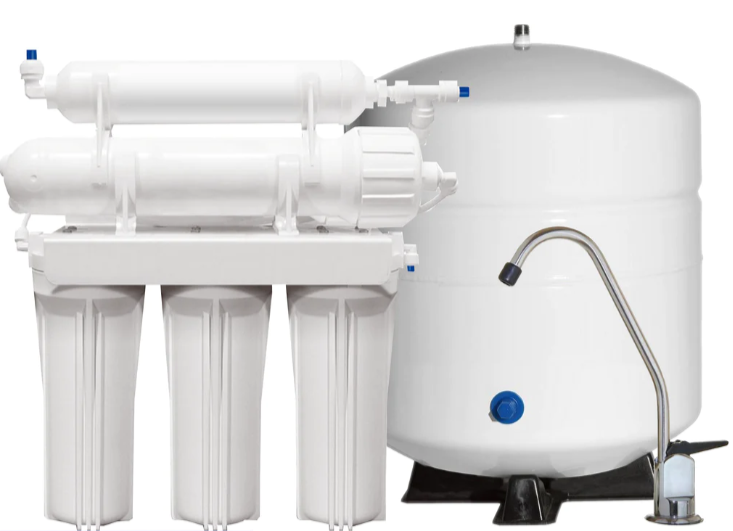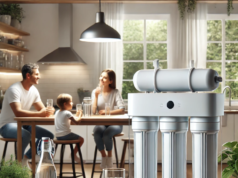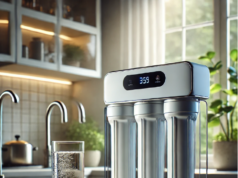Contents
The Environmental Benefits of Using a Garden Hose Filter
Utilizing a garden hose filter offers numerous **environmental benefits** that contribute to a healthier ecosystem. One of the most significant advantages is the reduction of pollutants being discharged into the soil and waterways. When you filter out harmful chemicals and debris, you ensure that your plants receive cleaner water, promoting their healthy growth without the risk of contamination.
Moreover, by opting for a garden hose filter, you decrease water wastage, as these filters often enhance the efficiency of water usage in your garden. This leads to a lower overall water consumption and supports **sustainable gardening practices**. Additionally, using filtered water can discourage the growth of harmful algae and bacteria, minimizing the need for chemical treatments that can harm the environment.
In summary, the benefits of employing a garden hose filter extend beyond just plant health; they play a crucial role in **protecting natural resources** and fostering sustainable gardening methods. By integrating this simple yet effective tool into your gardening routine, you’re making a meaningful contribution to environmental conservation.
💧 = Use the coupon code SALEG3P800 to save $150 OFF on the 800GPD Tankless RO System with UV Sterilizing Light – Waterdrop G3P800 = 💧
The Importance of Water Quality in Gardening
Water quality is crucial for the health of plants and the environment. Using tap water without filtration can lead to the introduction of harmful chemicals into your garden. A garden hose filter can help mitigate these risks.
contaminants in tap water
Municipal water supplies often contain chlorine, heavy metals, and other contaminants. These substances can adversely affect soil health and plant growth. Using a garden hose filter can significantly reduce these harmful contaminants.
How a Garden Hose Filter Works
A garden hose filter attaches to your existing hose, providing a barrier that limits contaminants from entering the water you use on your plants. Here’s how it works:
Types of Filters
- Activated Carbon Filters: These filters absorb chemicals and improve water taste.
- Sand Filters: Effective at removing sediment and larger particles from the water.
- Reverse Osmosis Systems: Great for purifying water but may require additional setup.
Environmental Benefits of Using a Garden Hose Filter
The utilization of a garden hose filter not only benefits your garden but also contributes to overall environmental health. Here are some key benefits:
Reduction of Chemical Runoff
By filtering harmful chemicals, you reduce the risk of these substances entering local waterways through runoff. This can help protect aquatic ecosystems and maintain biodiversity.
Supporting Soil Health
Using clean water promotes healthy soil ecosystems, which in turn supports stronger plant growth. Healthy soil can store more carbon, playing a vital role in combating climate change.
Conserving Water
Many garden hose filters come with a pressure regulator, which can help to conserve water by ensuring you’re only using what you need. This is particularly important in regions prone to drought.
Choosing the Right Garden Hose Filter
When selecting a garden hose filter, consider the following factors:
Filtration Level
Choose a filter that meets your specific water quality needs. For example, if you suspect that heavy metals are present, select a filter designed to remove them specifically.
Flow Rate
Ensure that the filter you choose won’t significantly decrease your watering efficiency. Look for models that offer a good balance between filtration and flow rate.
Conclusion
Investing in a garden hose filter not only ensures better water quality for your plants but also promotes sustainable gardening practices. By filtering out harmful contaminants, you help contribute to a healthier environment.
Learn More
For more information on sustainable gardening practices, visit this comprehensive guide.
💧 = Use the coupon code SALEG3P800 to save $150 OFF on the 800GPD Tankless RO System with UV Sterilizing Light – Waterdrop G3P800 = 💧
Shop now for Waterdrop N1
FAQs about the Environmental Benefits of Using a Garden Hose Filter
1. What is a garden hose filter?
A garden hose filter is a device that attaches to the end of a garden hose to remove contaminants, chemicals, and impurities from the water before it reaches your plants.
2. How does a garden hose filter benefit the environment?
By removing harmful substances from water, garden hose filters prevent pollutants from entering the soil and waterways, promoting healthier ecosystems and reducing chemical runoff.
3. Can using a garden hose filter improve water quality for plants?
Yes! A garden hose filter ensures that plants receive cleaner water, which can enhance their growth and resilience, leading to a more sustainable garden.
4. Do garden hose filters reduce water waste?
Filters can help you avoid over-watering by providing more effective irrigation. Cleaner water can also lead to healthier plants that require less water over time.
5. Are garden hose filters easy to install and maintain?
Most garden hose filters are designed for easy installation and require minimal maintenance, making them accessible for any gardener.
6. Is using a garden hose filter cost-effective?
While there is an initial investment, the long-term benefits, such as improved plant health and reduced water waste, can ultimately lead to cost savings.
7. Can I use a garden hose filter for other gardening tools?
Yes! Many filters can be adapted for use with watering cans, drip irrigation systems, and sprayers to ensure all water used in the garden is clean.
The Importance of Clean Water for Gardens
Using a garden hose filter significantly enhances the quality of water that reaches your plants. Contaminants found in municipal or well water can negatively impact plant health. By filtering out harmful substances, a hose filter promotes thriving gardens and reduces the need for chemical treatments.
Reducing Water Pollution
When you use a garden hose filter, you help to minimize the introduction of pollutants into the garden ecosystem. This contributes to maintaining a cleaner environment and supports local wildlife. Protecting the soil and water from harmful contaminants ultimately benefits the entire ecological system.
Conserving Water Resources
Filtered water can improve absorption rates in the soil, which means plants utilize water more efficiently. Healthy plants require less water, contributing to water conservation. By using a hose filter, you can play a part in preserving this precious resource.
Choosing the Right Filter
Selecting a garden hose filter that targets specific contaminants is crucial for maximizing its benefits. Many filters are designed to remove chlorine, heavy metals, and other harmful elements. For more information on water filtration, visit the Water Filtration page on Wikipedia.
The Environmental Benefits of Using a Garden Hose Filter
Improved Water Quality
- Removes harmful chemicals and pollutants from water.
- Prevents contamination of plants and soil.
Reduced Chemical Usage
- Lowers the need for chemical fertilizers and pesticides.
- Supports organic gardening practices.
Conserves Water
- Filters ensure that only clean water is used for irrigation.
- Encourages efficient water usage, reducing waste.
Supports Biodiversity
- Promotes healthier ecosystems by protecting beneficial organisms.
- Enhances garden resilience and productivity.
💧 = Use the coupon code SALEG3P800 to save $150 OFF on the 800GPD Tankless RO System with UV Sterilizing Light – Waterdrop G3P800 = 💧
Category – Reverse osmosis and filters





































